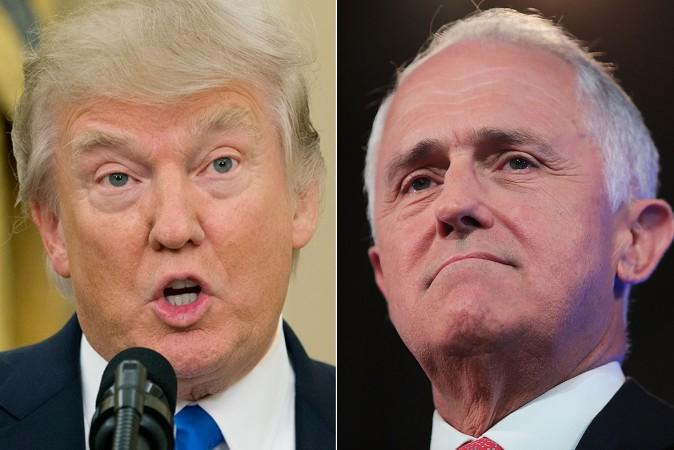
Veteran English-born Australian strategic analyst Professor Paul Dibb had anticipated it in October. A month prior to the American presidential election, Dibb had forecast that if Donald Trump emerged victorious in the November 8 polls, then Canberra could have a hard time.
The age-old alliance of ANZUS (The Australia, New Zealand, United States Security Treaty) could receive a setback just like Australia's trust in the Americans.
Dibb, a former deputy secretary with Australia's defence department, had warned that one had to "think through a worst-case contingency" and that a "potential for a disaster in the relationship shouldn't be dismissed". For the Australians, Hillary Clinton was definitely a better option.
And four months since Dibb made the predictions, US President Trump had the "worst call by far" with the Australian Prime Minister Malcolm Turnbull last week since he was very upset with the previous Barack Obama administration's agreement with Australia over receiving 1,250 refugees from a detention centre in Australia.
Trump also said on Twitter, his favourite medium of catharsis, that he would study the "dumb deal".
The controversial American president who took office in January and passed an executive order banning entry of refugees in his country, also said that he would be "killed politically" because of this agreement and also accused Australia of seeking to export the next set of "Boston bombers".
Trump's unconventional take on things can seriously hurt stability
The episode has certainly left the Australians confused and just like Professor Dibb had said, there is a fair possibility of the two old allies seeing their mutual trust taking a beating following this.
Whether Trump really did chastise the Australian premier is not known (the mainstream media's reporting on the American president is not beyond suspicion too) but the very reporting on such an ugly meeting between two allied leaders is going to cause a lot of harm to the international order, especially to the stability in the Asia-Pacific region.
A 'low' moment in US-Australia relations; China won't be complaining
The latest 'low' episode in US-Australia relations has occurred after a long time.
The last time such a thing occurred was during Richard Nixon's tenure when the then Australian prime minister Gough Whitlam criticised the American bombings in Vietnam. In fact, it was the government of Whitlam which had removed the last elements of the 'White Australia Policy', which had restricted people from outside Europe immigrating to Australia, in the 1970s.
The Trump-Turnbull episode could be even more sinister than just criticism, for it could affect the entire defence mechanism against China in the Asia-Pacific and allow Beijing to asset a greater role through new-found friends in the Philippines and Malaysia.
In short, Trump's era could soon mark an end to the Pivot to Asia policy of the previous Barack Obama administration and leave the volatile region in a bigger mess.
Australia, which has a great similarity with the US in terms of its nation-building (primarily by immigrants) and the political system, has been a close ally of the Americans since the First World War.
It is also a part of the "Five Eyes" intelligence-sharing programme along with the US, Canada, UK and New Zealand. Today, if the US takes to a not-so-friendly stance with its ally and Trump's whims force Canberra's leaders to make adjustments, that could prove to be counter-productive for the Australian leadership in the country's domestic politics. Hardliners only give birth to more hardliners.
It will be interesting to see where the US's allies, especially in the Asia-Pacific like Japan, South Korea besides Australia go from here, for they have the pressing China and North Korea issues in their neighbourhood. Dealing with Trump above all that would make things even more challenging.










